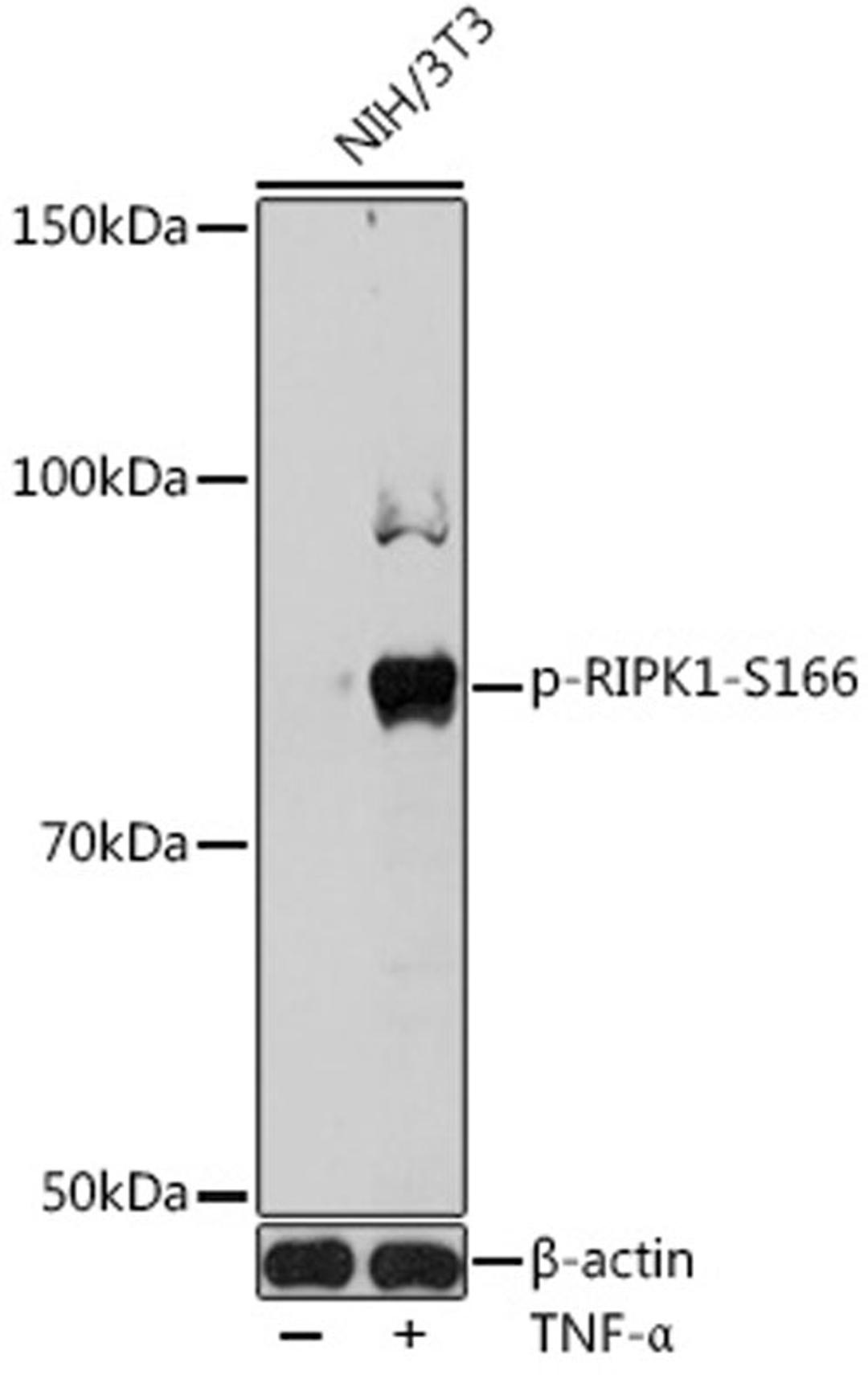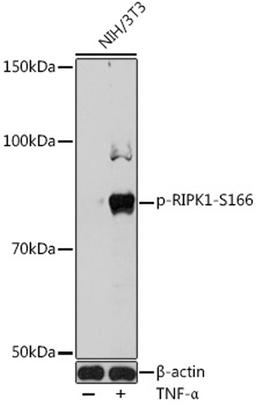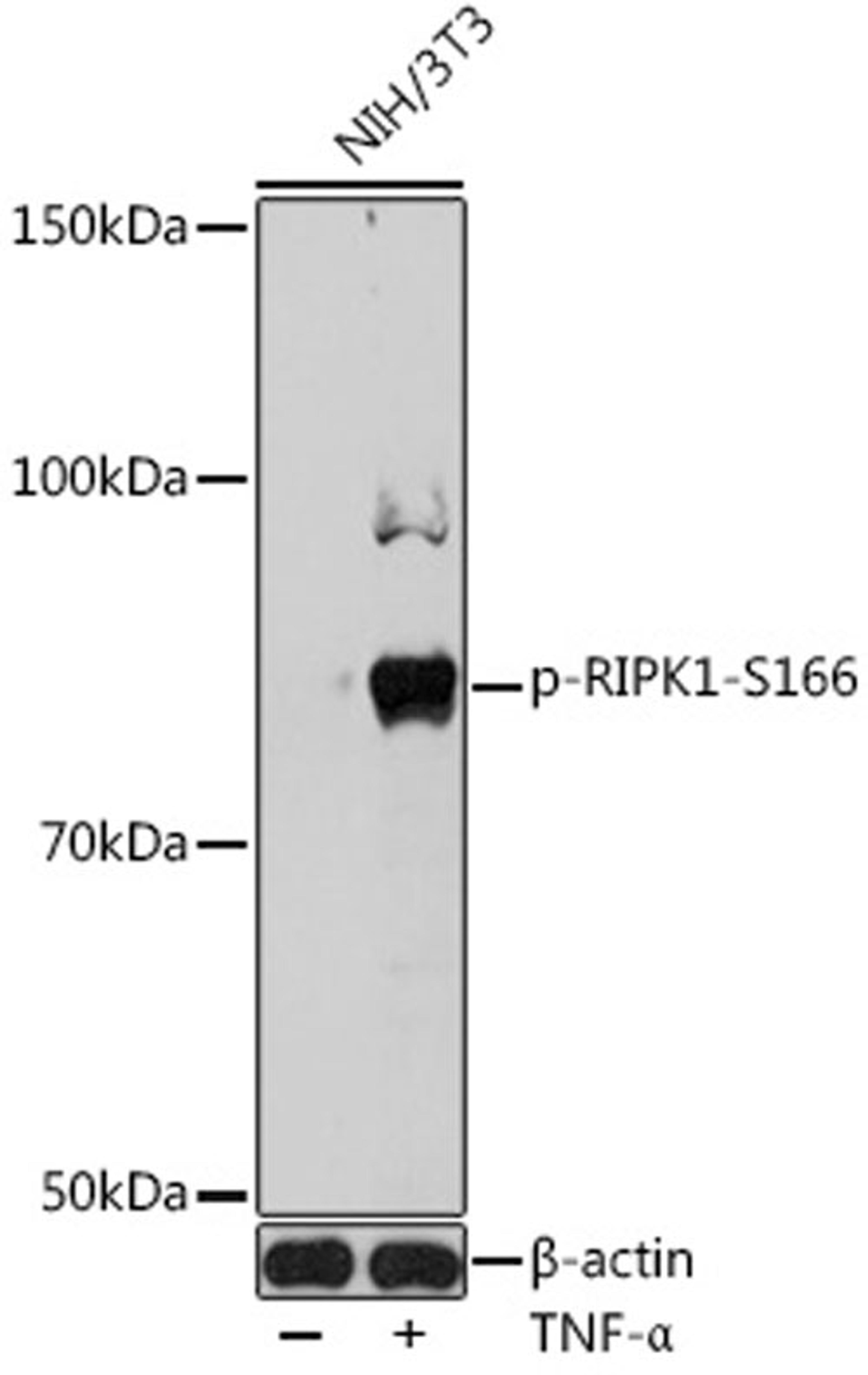Phospho-RIPK1-S166 Rabbit pAb
Product Details
- Cat. No.
- AP1115
- Type
- Primary Antibody
- Clonality
- Polyclonal
- Host
- Rabbit

The supplier does not provide quotations for this antibody through SelectScience. You can search for similar antibodies in our Antibody Directory.
Description
Serine-threonine kinase which is a key regulator of both cell death and cell survival (PubMed:25459879). Exhibits kinase activity-dependent functions that trigger cell death and kinase-independent scaffold functions regulating inflammatory signaling and cell survival (PubMed:31519887, PubMed:31519886). Initiates ripoptocide which describes cell death that is dependent on RIPK1, be it apoptosis or necroptosis (PubMed:31457011). Upon binding of TNF to TNFR1, RIPK1 is recruited to the TNF-R1 signaling complex (TNF-RSC also known as complex I) where it acts as a scaffold protein promoting cell survival, in part, by activating the canonical NF-kB pathway (PubMed:31519887, PubMed:31519886). Specific conditions can however activate RIPK1, and its kinase activity then regulates assembly of two death-inducing complexes, namely complex IIa (RIPK1-FADD-CASP8) and the complex IIb (RIPK1-RIPK3-MLKL) and these complexes respectively drive apoptosis or necroptosis, a regulated form of necrosis (PubMed:29440439, PubMed:30988283, PubMed:31519887, PubMed:31519886). During embryonic development suppresses apoptosis and necroptosis and prevents the interaction of TRADD with FADD thereby limiting aberrant activation of CASP8 (PubMed:30867408, PubMed:30185824, PubMed:31511692). Phosphorylates DAB2IP at 'Ser-728' in a TNF-alpha-dependent manner, and thereby activates the MAP3K5-JNK apoptotic cascade (By similarity). Required for ZBP1-induced NF-kappaB activation and activation of NF-kappaB by DNA damage and IR (PubMed:12654725, PubMed:19590578).
Biological Information
- Clonality: Polyclonal
- Host: Rabbit
- Reactivity: Human, Mouse



